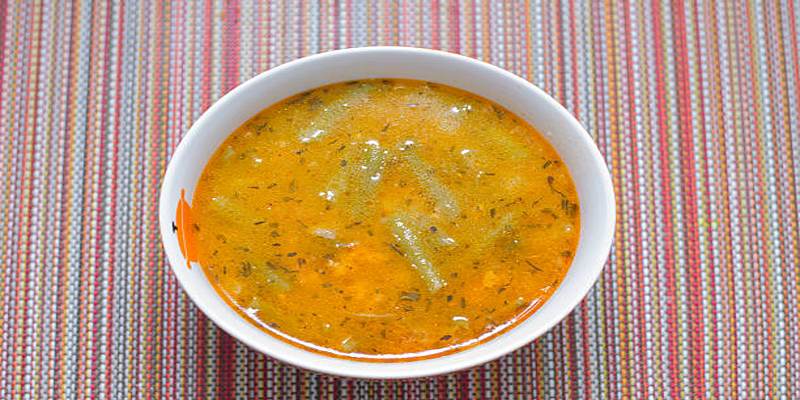Why Adding Nuts to Your Diet Can Boost Your Overall Health
2024-10-12 00:00:00 By Madison Evans
Nuts have been considered nutritional powerhouses containing an excellent amount of essential nutrients, ranging from protein to healthy fats, fiber, vitamins, and minerals. Their benefits go far beyond merely acting as the ideal snack to grab in a hurry on the move. Regular nut consumption was linked to better cardiovascular health and reduced inflammation for healthy brain function. We will further discuss why nuts should be part of any healthy diet and how it might improve overall health.
Healthy Fats
Nuts are also abundant in monounsaturated and polyunsaturated fats, which decrease HDL pain levels while keeping you safe. Nuts are rich in plant-based protein levels, greatly enriching vegetarian and vegan diets. Protein fulfills the role of tissue reconstitution and restoration, maintains the muscle tissue, and satisfies one.
Fiber
Digesting diet fibers in nuts improves gut health and the balance of sugar in the blood. This makes people feel satisfied and consume fewer calories.
Vitamins and Minerals
Nuts contain all the key required vitamins and minerals, including vitamin E, magnesium, phosphorus, copper, and selenium. Vitamin E is an antioxidant that might help prevent cell damage.

Nuts and Weight Gain Relationship
While nuts are undeniably healthy, it's essential to consider the potential for overconsumption to lead to weight gain. This section will delve into what and how much you eat and how it can impact your diet and weight.
Calorie Density
Nuts contain all essential vitamins and minerals, including vitamin E, magnesium, phosphorus, copper, and selenium. Vitamin E is an antioxidant that may protect against some form of cellular damage.
Healthy Fats and Fullness
Although nuts are high in fats, their unsaturated fat is relatively healthier than saturated or trans fats. It keeps up the energy and brain functions and rejuvenates the cell regeneration. The most important aspect is that the portion of nuts contains fats, proteins, and fibers, which makes a person feel satisfied or whole for a longer time. Normally, this reduces the general food intake, which would otherwise trigger the feeling of binge eating and subsequently make one gain weight. Moderation is the key to that, though it is nutrient-rich. Overindulging in nuts automatically places you at risk of absorbing too many calories in the body, which will eventually add to fat buildup and weight gain.
Do You Get Fat if You Overeat Nuts?
Enough Said: Use Moderation in Your Portion Control
They are so tiny and delicious that one could quickly gobble copious amounts of nuts. Anyone can wolf handfuls of these treats in one sitting and consume hundreds of calories without noticing. Calories add up quickly, and one will likely gain weight because one consumes additional daily caloric intake.
For example, it takes 320 calories to keep a two-ounce serving of cashews, but only one ounce provides about half those calories. Snacking in front of the TV or at work can easily lead to overeating, and that's not all you'd consume more calories than you bargained for.
Nutrient Absorption
Curiously, however, the body can't absorb all the calories from nuts. The fats are covered by undigested cell walls instead of being broken down with digestion. That means part of the fat may leave the body through excretion and not be absorbed into the body at all. This means the nuts' calories could be less than the nutrition label indicates.
For example, one review in the American Journal of Clinical Nutrition concluded that almonds were filling and tended to be associated with less caloric intake than the person consumed when they introduced a quantity that equaled its energy. This is one reason nuts are likely less fattening than we would expect.
Metabolic Boost
In addition, there is limited evidence that nuts boost metabolism to a small degree. Nuts are high in protein; in the human body, the digestion and metabolism of protein require significantly more calories than carbs and fats, so their inclusion can raise calorie burn via the thermic effect of food, partially compensating for the calories from the nuts. Nut nutrients can even optimize gut and digestion health, culminating in better nutrient metabolism.
Weight Management and Nuts
Most evidence reveals that inclusion in the diet might be permissible for nuts. For example, moderate intakes of nuts have been shown to result in feeling full in many people, thereby obviating overeating.
Nut Intake and Feeling of Fullness
Nuts are a mixed food for protein, fiber, and healthy fats. Thus, nuts can become an ideal snack to reduce hunger and minimize overeating. Consuming nuts in moderation will likely curb your appetite and decrease the chances of other inadmissible intakes, mostly eaten as chips or sweets.

Nuts in the Balanced Diet
Adding nuts to a diet comprising fruits, vegetables, whole grains, and lean proteins can provide general health benefits without weight gain. However, it is crucial that one not rely on nuts for all their nutrient supplies as moderation should be maintained.
Nuts and Weight Loss
Interestingly, subsequent studies indicated that frequent users of nuts never get an opportunity to increase their weight with time. Published in Obesity, a study found that nuts consumers frequently lower body weights compared to less frequent nuts consumers. This can be accounted for by the fact that nuts come in an appetite-suppressing form, and perhaps not all calories consumed by nuts are digested by the human body.
How to Enjoy Nuts Without Getting Fat
Nuts are healthy and satisfying for snacking, but you must control eating quantities so that you won't go too wild. Here's how:
Stick to Recommended Serving Sizes
The serving size is about an ounce, or the equivalent of a small handful. You can also have one of the following: 24 almonds, 28 pecan halves, 14 hazelnuts, 23 walnuts, and 1 oz pistachios. Always measure your portions so you don't overdo it, and never snack directly from the bag since that will probably make you eat more than one serving.
Nuts: Select Unsalted and Unflavored Nuts
Select raw, unsalted nuts instead of roasted nuts drenched in added oils, salt, and sugar. Honey-roasted nuts and all those flavor nuts are primarily full of calories and sugar, which is precisely why you gobbled too much.
Eat Nuts with Other Foods
Mixing nuts with other good foods like fruits, vegetables, or yogurt so that people can eat satisfactorily without upsetting the balance of nutrients may stabilize blood sugar levels and encourage healthy eating if mixed nuts with high fiber or high protein content foods.
Reduce the Frequency of Snacking on Nuts During the Day
However, while nut-eating, calorie density should be considered, and snacking should be avoided often throughout the day. Instead of snacking, nuts can be added to what's eaten; for example, throw a handful of nuts into a salad, oatmeal, or smoothie.
Conclusion:
Nuts are a nutrient-rich food that benefits wholeness in health. They also contribute to heart, digestion, and brain functioning. However, if used in large portions, nuts can cause weight gain. Nuts can be enjoyed without gaining extra weight by being taken in moderation. Although the serving portions are huge, you can still enjoy plain and unsalted nuts while eating a balanced meal for their advantages and avoid unwanted fat additions. Therefore, nuts are an excellent addition to a healthy diet but must be taken mindfully.








